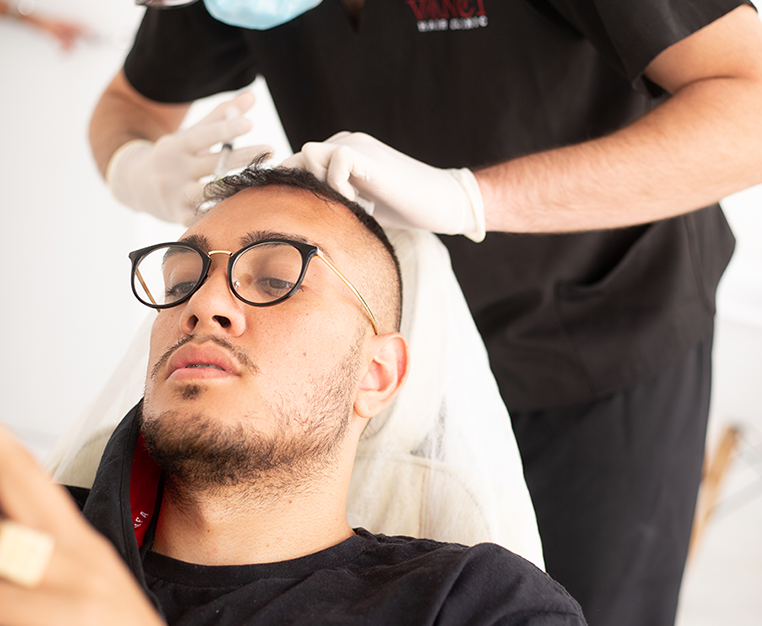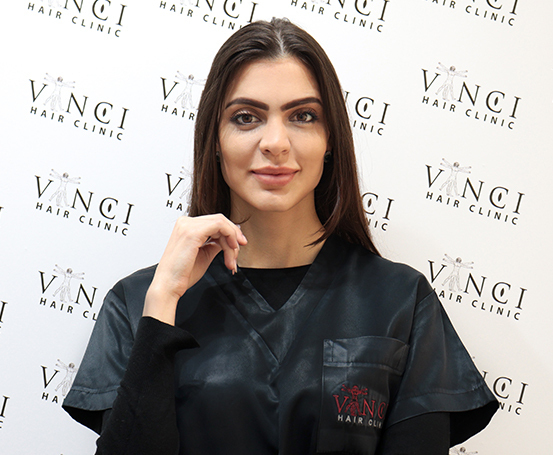Hair loss doesn’t happen by choice but treating it does. The challenge we face while treating hair loss is in finding products that give true results. Distinguishing between marketing hype and treatments that indeed lead to hair regrowth requires a bit of investigation into what is promised and what is possible.
Products such as scalp serums, conditioner duos and shampoos have been developed to regrow your hair. Now, we should consider what is feasible and what is not before raising our expectations.
Firstly, we should approach our hair restoration journey with its cause fixed in our mind.
What is Causing Your Hair Loss?
Paul Nassif MD, a board-certified facial plastic and reconstructive surgeon, states that “There are many causes of hair loss, including hormonal imbalances, genetics, stress, hair extensions, etc.” Malnourishment and lack of proper exposure to sun rays can cause your body to be deficient in minerals such as zinc, Vitamin D, or iron, leading to hair loss.
“Hair loss can be temporary, self-correcting, diffuse hair loss, or permanent until the cause is corrected,” adds Gaby Longsworth PhD, scientist, and certified hair practitioner. Yes, topical treatments treat temporary hair loss that develops over time and has not been inherited, but these products can’t entirely recover your lost hair that has fallen due to genetic traits. Any product that claims to achieve this is simply selling you false hope.
What Treatments Are Proven to Work Against Hair Loss?
When you search for hair loss solutions, you get bombarded with hundreds of ads for products and ingredients that claim to regrow your hair. Filter the results with care, as only two products have received approval from the Food and Drug Administration (FDA).
Dr Longsworth adds “For hair loss in men: topical minoxidil and oral finasteride”. When it comes to hair loss in women, the only officially accepted treatment to combat hair loss is topical minoxidil which has proven to aid hair growth and reduce its loss.
While finasteride requires a prescription, minoxidil can be purchased over the counter in most drug stores. “It’s most effective when used early on, but you’ll only see its benefits while you’re using the product. It won’t cure hair loss,” adds Dr Nassif.
Proven Hair Loss Remedies That Require No Prescription
There are other remedies and hair loss treatments that hold fewer risks and require no prescription. Ingredients such as jojoba or rosemary oil and Vitamin E have are aids to the hair growth process but haven’t yet been medically approved by the FDA. Results may vary significantly, therefore.
Treating Hair Loss with Vitamin E
Dr Longsworth says that a low level of antioxidants in the scalp area leads to hair loss (alopecia). Antioxidants play an important role in fighting oxidative stress which decreases the scalp’s ability to retain hair follicles. Vitamin E (found in peanuts and almonds, for example) is just one ingredient that functions as an antioxidant.
Treating Hair Loss with Rosemary Oil
Dr Longsworth states that “Rosemary oil improves blood circulation to the scalp and destroys bacteria that clog hair follicles.” Considered as one of the few natural remedies to effectively treat hair loss, rosemary oil can be applied as a topical treatment in combination with a scalp massage.
Treating Hair Loss with Jojoba Oil
Another natural remedy is jojoba oil, which Dr Longsworth states can “penetrate the hair follicles and strengthen hair from the inside.” Similar to coconut oil in its effects, jojoba oil is molecularly structured like the sebum found in our skin. It’s an oily substance released by our glands.
Hair Loss Treatments Given In-Office
Topical or oral treatments can’t restore hair loss once it has reached a certain stage. In such cases, in-office treatments remain the best option even though Dr Nassif says they cannot always tackle the root cause of hair loss. The main two procedures he suggests are:
- NeoGraft Hair Restoration. As the only FDA-approved solution, NeoGraft is a hair transplantation method in which healthy hair is collected from a dense hair area and implanted into a bald area. Compared to traditional transplant technology, it is semi-automated.
- Platelet-Rich Plasma (PRP) Treatment. Using the restorative power of the body, PRP involves the injection of plasma rich blood taken from the client) into the scalp. Dr Nassif states that “it is a great option because there is little risk to this procedure other than tenderness at the injection site.”
Conclusion
Having listed some of the major treatments for both DIY and in-office application, we have equipped you with the information you need to distinguish between over-hyped hair loss products and scientifically tested treatments.
If you are experiencing slight hair loss symptoms, we suggest you regulate your diet to get the minerals and proteins you need to nourish your hair follicles. If the situation worsens, consider other treatments or talk with a hair expert. Vinci Hair Clinic offers free consultations to help you treat your hair loss properly. Reach out to book yours today!



